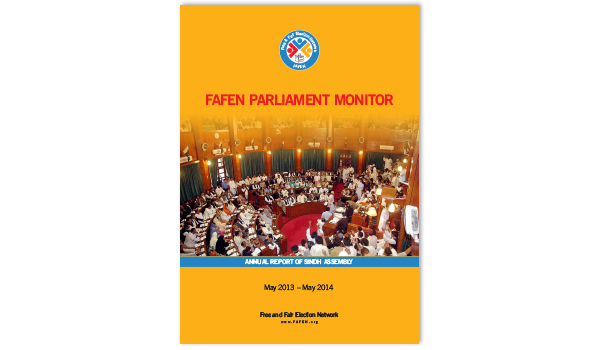The first parliamentary year of the 14th Sindh Assembly was marked by heavy treasury-backed legislation amid protests, a lackluster government oversight in the absence of standing committees and lawmakers’ minimal participation during the question hours. A shift in trend was observed compared to the preceding year as lawmaker’s actively tabled agenda and utilized calling attention notices to question the government.
The Sindh Assembly passed the highest number of government bills (36) compared to all other assemblies, nearly half (20) of which were amendments to existing laws. However, none of the six private member’ bills were passed during the year. PPPP was the only party presiding on government benches with a simple majority of 92 members before MQM left the opposition to join the government in April 2014.
Therefore the former had the power to approve its legislations for the most part during the year. The only private member’s bill that came close to passage was the Child Marriage Prohibition Bill 2013, which was merged with a similar government bill. The bill sought a ban on the marriage of children below the age of 18. Other significant private bills calling for prohibition of lavish expenses in weddings, demands for dowry and mandatory DNA test in forensic investigations of rape cases were not passed till the end of the year.
With the province awaiting the local government elections, the House passed the Sindh Local Government Bill 2013 with minimal resistance. However the ensuing amendments to the bill incited massive protests from the opposition. Several petitions were submitted to the Sindh High Court, challenging certain proposed amendments for causing disparity in delimitation of constituencies – a violation of Article 104 A of the Constitutional. Consequently, the court, in its ruling on March 19, 2013, voided the amendments.
The House passed two significant bills in the wake of military operation in Karachi that provided for protecting and encouraging witnesses to submit evidence against an accused by concealing their identity. The bills also sought emergency procurement of security equipment for law enforcement agencies in the wake of targeted attacks.
The House actively legislated on matters related to real estate, transpiring in the revival of five laws (Repealed in 2002) to legalize development authorities in Hyderabad, Lyari, Malir, Sehwan and Larkana. Additionally, the House passed important bills on environmental protection and computerization of revenue and land records in the province. Meanwhile, a lukewarm attitude was witnessed to augment the education sector, while no bills were passed to bring improvement and reforms in the energy sector.
For complete report click here









